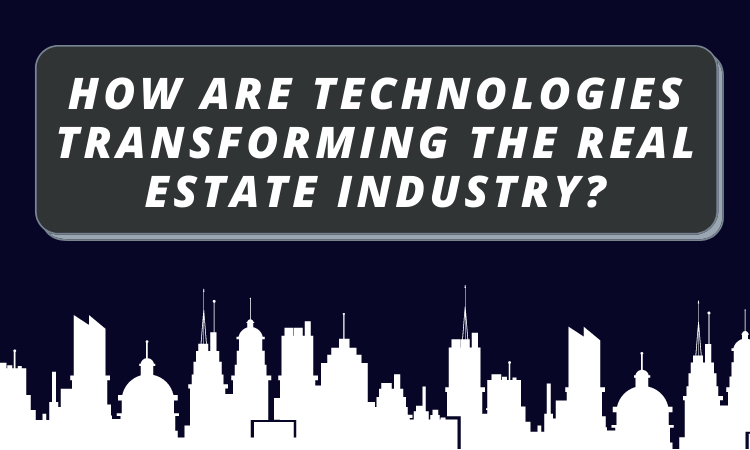Recent years have seen significant technological advances in the real estate sector. These developments are constantly transforming the way real estate professionals work and deal with their clients. Moreover, these emerging technologies in the real estate industry are constructive for all parties, including real estate agents, sellers, buyers, and investors. Realtors must leverage these technologies to generate long-term value and become the best real estate broker in Canada and the USA.
Here are a Few Ways the Latest Real Estate Technologies are Transforming the Industry
Data Analytics
Data analytics is one of the offsprings of the latest technologies. It has the power to transform how the real estate industry meets its customer's needs. Data-driven facts help to make informed business decisions. The latest real estate technologies leverage both previous and current time data to give in-depth insights on trends, prices, patterns, demographic data, and prospective value in a particular area. Real estate data and analytics provide several advantages for realtors, buyers, and investors. The analysis of unstructured data assists agents in pricing a property by offering real-time area price research along with projected future price trends. Besides, it also helps brokerages hire the best agents in their area.
Reduced Risk
It is no secret that technologies have streamlined the processes of the real estate business by automating them. One of the advantages that come with modern data technology is that it has reduced the risk factors to a great extent. Real estate professionals use data to get relevant and reliable information which minimizes the risks involved for both buyers and investors. Moreover, as price swings are quite common in the real estate sector, the risk is very significant. But the latest data technologies like cutting-edge web-based software reduce risk by forecasting future pricing. Also, it lowers the possibility of choosing the wrong property.
CRM
CRM or Customer relationship management software is yet another gift of modern technologies. A CRM software can track leads, store data, manage contacts, and keep track of the progress with potential leads. It allows real estate professionals to have their online accounts to keep tabs on all of their interactions with current as well as potential clients. Thus, a real estate CRM lets businesses manage and build strong relations with their leads, prospects, contacts, and existing clients. In addition, it focuses on storing customer data and helps improve sales.
Extended Reality (XR)
Extended reality consists of technologies like augmented reality (AR), virtual reality (VR), and mixed reality (MR). Today, the extended reality is changing the way people buy real estate. It revolutionizes the way the real estate industry functions. Virtual reality (VR) enables a buyer to visit a prospective home without even stepping out of their home. Virtual tours of the property allow investors or buyers to view a property before making any decision. It gives a true representation of the appearance and feel of a property. Virtual 360-degree property tours have become commonplace in the current pandemic stricken world. Furthermore, augmented reality (AR) simplifies the process of closing deals for unfurnished properties. Today, almost every real estate broker in Canada and the USA uses extended reality technology to escalate their sales.
Internet of Things (IoT)
The Internet of Things fortifies smart gadgets, which have become a popular property management technology that affects the real estate industry. It is the practice of embedded computing technology and sensors into various products. The ultimate purpose of IoT technology is to simplify life for people. You can now develop an application to transform an ordinary home into a smart one to improve sales. Besides, professionals can also create a virtual assistant to communicate or interact with the residents and people outside the door when no one is at home. Therefore, technology is quite useful in providing virtual access instead of physical presence. IoT enables multiple devices or systems to make real estate more sustainable, efficient, and user-friendly.
Takeaway!
So, these are some consequential ways how technological advances are affecting the real estate sector. They help professionals make better and more well-informed decisions, reduce the risk factors, give accurate property valuations, and improve the customer experience. Also, they automate actions and optimize processes. After learning these advantages, you will also want to utilize the latest technologies to boost your real estate business.








